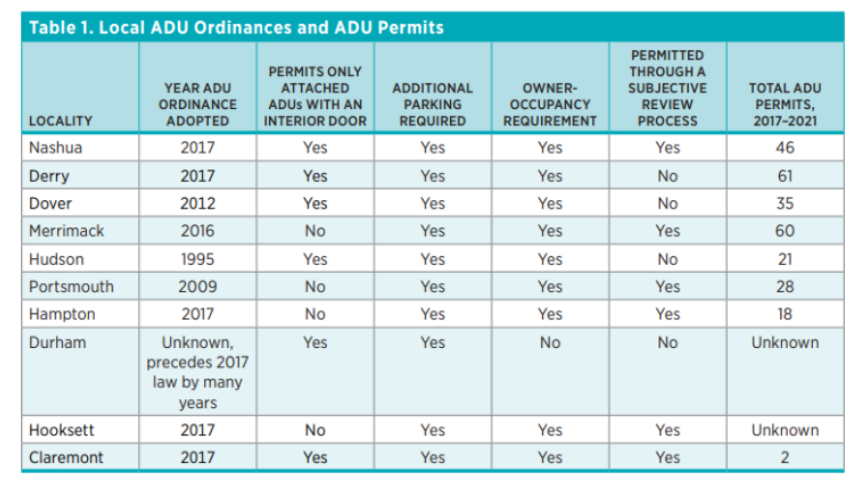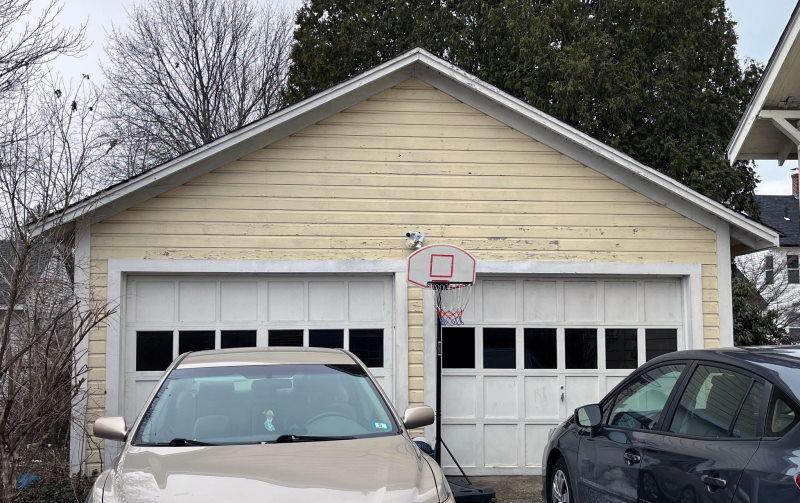Last summer as part of broader efforts to address the ongoing crisis of housing and homelessness, I pitched various entities within the City of Keene on the idea of reforming the current restrictions on building Accessory Dwelling Units (ADUs) in our community. I’m happy to say that an ordinance for ADU reform is now making its way through the City Council process.
Accessory Dwelling Units are smaller, secondary housing units that share a property with existing single-family homes. They can be attached to the existing house – like when an attached garage is converted into a “mother-in-law suite,” or they can be detached as a separate building on the property.
Currently we allow ADUs in Keene, but with substantial restrictions. For example, detached ADUs are only allowed in the Rural and Agricultural zones. This means that all of the many old carriage houses and stand-alone garages in densely populated residential areas close to the city center are currently off limits for conversion into living space. This latest ordinance should change that.
This is a valuable opportunity because, as I was quoted saying last year, “The quickest, most affordable and equitable thing we can do to increase the availability and reduce the cost of housing in Keene is to enable more people to live in the buildings we already have.”
As luck would have it, a policy brief, authored by Emily Hamilton and Abigail Houseal of George Mason University, was recently released that takes a look at New Hampshire as a case study as part of a national study of state laws concerning ADUs. The study sites the following factors that make New Hampshire a relatively well-suited state for ADU building. To quote the study, these are:
- High rental rates
- Binding supply constraints on other types of housing
- Existing stock of large, relatively lightly occupied single-family houses
- Large lots
- Demographics that support housing construction, including people with funds to build them, families looking for intergenerational housing solutions, and student renters
According to Hamilton and Houseal's analysis, the three major regulatory barriers that tend to limit construction of ADUs are owner-occupancy requirements, parking requirements, and requirements for a conditional use permit. All of these requirements will tend to reduce the number of ADUs that get built, and thus reduce the effectiveness of ADU construction as a tool for use in easing the housing shortage.
While Keene’s new ordinance does not require a conditional use permit for an ADU, it does require that each ADU come with a parking space and that the owner of the property live there, in either the main house or the ADU. I actually know of an ADU in Keene that currently sits empty due to that owner-occupancy rule.
Unfortunately, the researchers were able to get data on ADU counts from only a few municipalities – town-level data is far too difficult to assemble in this state. But one does what one can with the data one has. In this case, there is enough at least a nice table of different policies in several NH jurisdictions:

Being as Keene and Portsmouth are of similar sized populations, this suggests, once detached ADUs are no longer restricted, we might settle into a pace of about six new ADU permits a year - or perhaps more as no conditional use permit will be required. We could do even better by dropping the parking and owner-occupancy requirement.
Of course, regulatory changes only go so far. While among the most affordable options for housing development, ADUs are still quite expensive to build from a homeowners perspective, and so better funding mechanisms are needed.
Recently, large developers have been able to rake in housing incentives from federal funds that are channeled through the state. Dollar-for-dollar, these corporate handouts would be a lot more effective at bringing affordable housing to market if they were made available to homeowners seeking to finance ADU projects.

